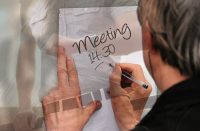忙中…

忙中閑あり。[忙中おのずから閑あり。](日本の諺・慣用句) / 一番忙しい人が一番暇を見つける。 More »

忙中閑あり。[忙中おのずから閑あり。](日本の諺・慣用句) / 一番忙しい人が一番暇を見つける。 More »

The one word you’ll need is no. – Bette Davis [Ruth Elizabeth Davis] (1908 – 89) More »

“NO”と思えば”NO”と言うべき。 – ベティ・デイヴィス[デービス] (1908 – 89) More »

The gentleman is harmonious but not conformable; the small man is conformable but not harmonious. – Confucius (551? – 479B.C.): Lun Yü [The Analects (of Confucius)] (trans. by Kô Shyôrin (1958 – )) More »

君子は和して同ぜず、小人は同じて和せず。 – 孔子 (紀元前551? – 前479): 『論語』子路(しろ) / ([(漢)君子和而不同、小人同而不和。]) More »
![IMAGE: Strike the iron while it is hot. [Strike while the iron is hot.] / Not only strike while the iron is hot, but make it hot by striking.](https://www.ok312.net/wp-content/uploads/2014/12/forge-550622_640-200x133.jpg)
Strike the iron while it is hot. [Strike while the iron is hot.] / Not only strike while the iron is hot, but make it hot by striking. – Oliver Cromwell (1599 – 1658) / (Tomorrow never comes…) / (It’s… More »
![IMAGE: Strike the iron while it is hot. [Strike while the iron is hot.] / Not only strike while the iron is hot, but make it hot by striking.](https://www.ok312.net/wp-content/uploads/2014/12/forge-550622_640-200x133.jpg)
鉄は熱いうちに打て。 / (機会を逃す(のがす)な。) / 鉄は「熱いうちに打つ」だけでなく「打つことで熱く」せよ。 – オリヴァー・クロムウェル (1599 – 1658) / (紺屋の明後日…) / (今しか…) More »

I no more thought of style or literary excellence than the mother who rushes into the street and cries for help to save her children from a burning house, thinks of the teachings of the rhetorician or the elocutionist. -… More »

「文体がどう」とか「文学的にどう」とか、そんなことは考えなかった。燃える家から我が子を救い出そうと通りに駆け出て助けを求める母親が、修辞家とか雄弁家とかの教えなど考えていられないのと同じことよ。 – ハリエット・ビーチャー・ストウ (1811 – 96) More »
![IMAGE: Learning without thought is labor [labour] lost; thought without learning is perilous.](https://www.ok312.net/wp-content/uploads/2014/12/confucius-547152_640-200x150.jpg)
Learning without thought is labor [labour] lost; thought without learning is perilous. – Confucius (551? – 479B.C.): Lun Yü [The Analects (of Confucius)] / (Liberty without…) More »